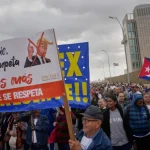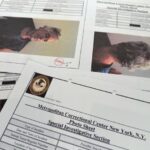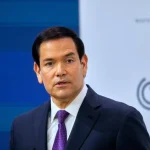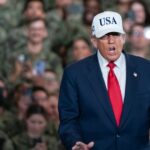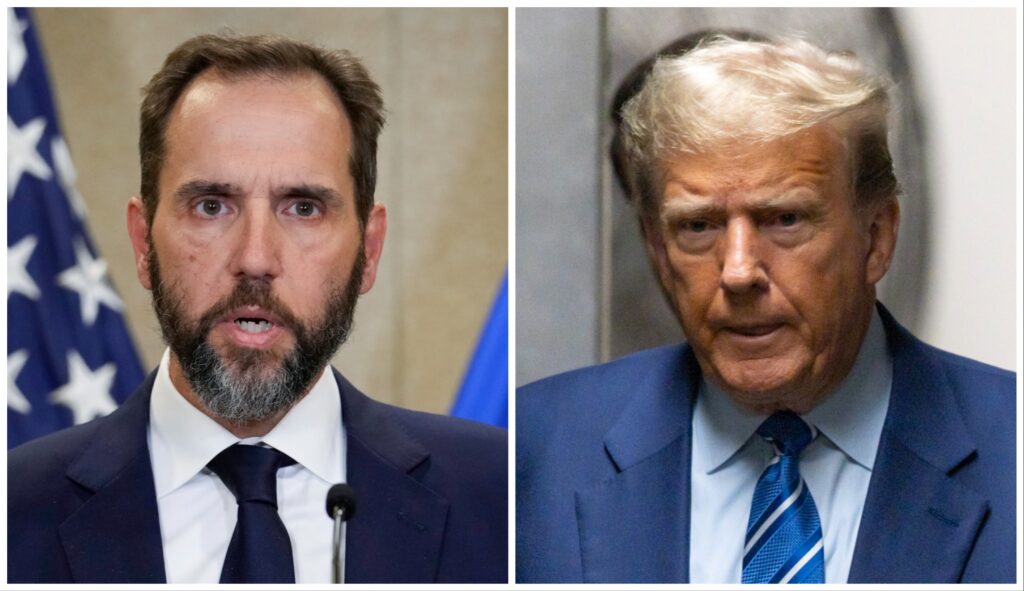
The Supreme Court on Thursday will consider whether former President Donald Trump enjoys any immunity against the federal charges he faces, a high-stakes dispute for its final case of the term.
Special counsel Jack Smith, who was appointed by the Biden administration’s Department of Justice under the leadership of Attorney General Merrick Garland, alleged that Trump sought to subvert the 2020 election results due to his actions surrounding the Jan. 6 riot. Trump has denied wrongdoing and contends that former presidents enjoy broad immunity from criminal charges, arguing a finding to the contrary would “incapacitate every future President,” according to his attorneys.

Legal experts in recent weeks have noted that a victory for the former president in Trump v. United States doesn’t require the Supreme Court to side completely with Trump’s argument despite his push for a ruling that would completely dismiss the federal indictment.
Richard Bernstein, a lawyer who filed an amicus brief opposing Trump on behalf of ex-government officials, told NBC News that Trump’s “second preference” would be a ruling that sets a complex factual test for immunity that would force the trial court to reexamine whether each of the four charges in his election subversion case can still apply to Trump.
If the Supreme Court majority gave Trump a partial ruling, the “case would get bogged down” because a lower court may need to reanalyze whether the charges in the indictment pertain to official acts of the then-president. That kind of ruling would further delay a trial for Trump, which he has sought to keep from happening until after the November presidential election.
Meanwhile, Smith has stated that “presidents are not above the law” and argued the U.S. Court of Appeals for the District of Columbia Circuit was correct to find Trump is not immune from prosecution in his election case. Smith called on the Supreme Court not to reverse the appellate court’s decision even if the justices find former presidents enjoy minimal immunity.
“Even if the court were inclined to recognize some immunity for a former president’s official acts, it should remand for trial because the indictment alleges substantial private conduct in service of petitioner’s private aim,” Smith wrote in an April 8 brief.
Attorney Kathleen Hartnett said that it seems as if both Trump and Smith are trying to find ways to make sure that their “more maximalist” positions in the dispute “are not the only thing they can talk about if the court ends up trying to be interested in a more minimalist resolution,” according to an interview with the Law Dork blog.
Hartnett was responsible in part for helping 19 former high-ranking officials in the military file an amicus brief that argued Trump’s position would “threaten the military’s role in American society, our nation’s constitutional order, and our national security.”
Trump is represented by D. John Sauer, who made headlines earlier this year when he told the U.S. Court of Appeals for the District of Columbia Circuit that a president could hypothetically avoid criminal liability for ordering Navy SEALs to assassinate a political rival, an example that stunned some legal observers.
Sauer is a former clerk to the late Supreme Court Justice Antonin Scalia. He also served as Missouri’s solicitor general, where he won the only Supreme Court case he has argued until now, securing a 5-4 decision in an execution case.
Sauer’s opponent, Michael Dreeben, is a longtime DOJ official. He has argued more than 100 cases at the high court, many of them surrounding criminal law. Dreeben was also part of former special counsel Robert Mueller’s investigation of Russian interference in the 2016 election and joined Smith’s team last year after working in private practice.
The case before the justices on Thursday has the potential to alter the landscape of the 2024 campaign dramatically, as Trump is staring down four separate criminal indictments that amount to 88 charges in total. He has pleaded not guilty to each indictment.
Staunch allies of Trump, such as Article III Project founder Mike Davis, have issued bleak warnings to the Biden Justice Department if its theories about presidential immunity were to be turned against it in a future Republican administration.
“Think about this, can the Trump 47 Justice Department charge President Obama for capital murder for his extrajudicial drone strike of two American citizens, including a minor? Can the Trump 47 Justice Department charge President Biden for his illegal mass parole of illegal migrants into our country and the resulting crimes? Do the Democrats really want to go down this path?” Davis recently told Fox News.
If the Supreme Court rules entirely against Trump, U.S. District Judge Tanya Chutkan, an Obama appointee presiding over Smith’s Jan. 6 case, would immediately resume pretrial proceedings after the appeals process stripped her of jurisdiction over the case. A trial for the election interference allegations could occur as soon as a few months after that. If the high court rules fully in favor of Trump, the case could be dropped altogether.
But legal experts largely believe a middle-ground approach is more likely. The Supreme Court routinely tries to find ways to minimize substantial impacts of its decisions if at all possible, sometimes referred to as an “off-ramp” approach.
“This is a court that tends to be incremental. They tend not to favor sweeping rulings,” George Washington University Professor Jonathan Turley told Fox.
The immunity question before the high court is one that has been expedited, meaning a decision could come sooner rather than later. The justices can technically wait until the end of June to issue a decision, and if they do, it would have the immediate effect of further delaying Trump’s trial.
The former president is facing a six-week trial in the Manhattan hush money case against him. Presiding Justice Juan Merchan told him he could not skip court on Thursday to attend the Supreme Court arguments.
CLICK HERE TO READ MORE FROM THE WASHINGTON EXAMINER
Trump on Wednesday chided Merchan for banning him from going to Washington, D.C., for the landmark arguments, claiming his trial judge thinks he is above the nine justices.
“Because he thinks he is above the Supreme Court, he is prohibiting me from going to the presidential immunity hearing where some of the great legal scholars will be arguing the case — the most important case in many years on the Supreme Court,” Trump said.
